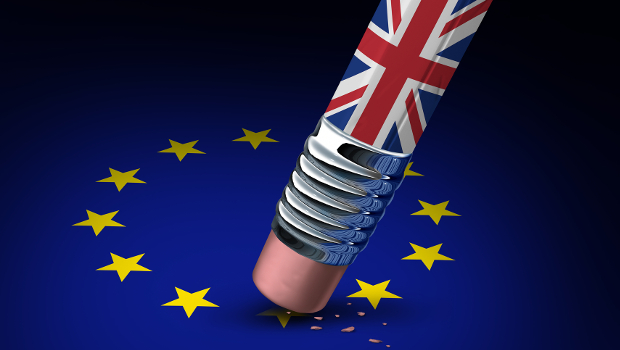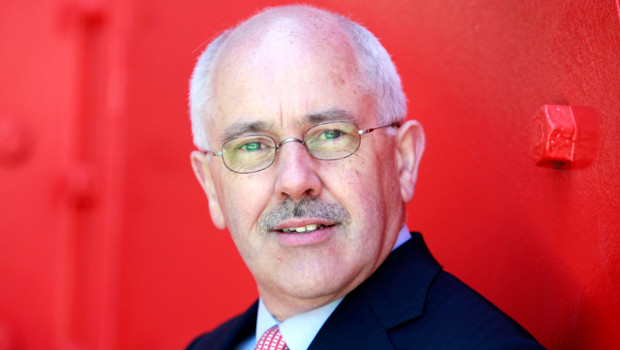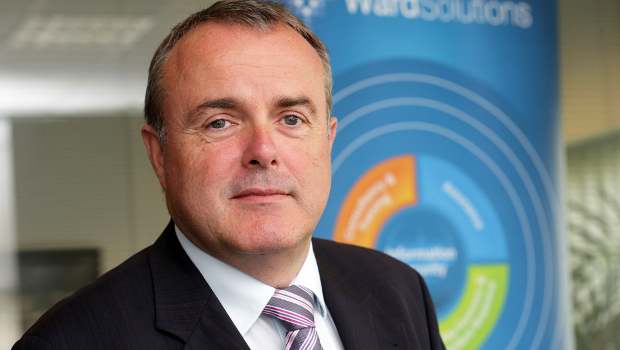Amid all the sound and fury around Brexit, it’s easy to forget that it’s 15 months since the UK’s fateful decision to leave the EU and the proposed exit date is only 18 months away. In other words, the UK is nearly halfway through the process and, to paraphrase Shakespeare, all that sound and fury has signified nothing. There has been no substantive progress on any of the issues surrounding Brexit. None.
Last year, in the wake of the UK’s (narrow) vote to leave the EU, TechTrade asked several channel figures to provide their views on its possible effects and consequences. A year later, has anything changed?
Michael Conway, director, Renaissance
In September last year, Conway described Brexit as “an own goal” and “an example of the failure of democracy”. It would be fair to say that his views haven’t changed in the interim. “I was in London last week,” he says, “and 90-plus percent of the people I talked to thought Brexit was lunacy.”
He believes the result was partly because people didn’t realise what they were voting for. “Their decision was certainly made with disinformation. It was a failure of democracy and shows you how you can lead people down the garden path without checks and balances. I can’t understand why there wasn’t a proper referendum commission that said you can’t make statements without any foundation. You wouldn’t buy a car with the information these guys based their decision on.”
Pulling the trigger by invoking Article 50 so swiftly after the vote made things even worse. “And in the middle of all this, they created another own goal with a lame duck government. The Tories haven’t worked out among themselves who is going to be involved [in the Brexit negotiations] so they’re not in any position to move forward. They’re in more uncertainty than they ever were. The uncertainty is greater and the timeline is shorter than ever.”
Stateless
With only 18 months to go, Brexiters are “living in a naive, weird state, where they think they will get a soft exit and somebody will look after them at the end of the day.” He warns that companies are already starting to relocate away from the UK and those looking to invest “are not investing in the UK”. He believes Irish companies that haven’t made an investment in the UK yet will be deterred from doing so until they know what the situation will be. “The great leveller is uncertainty. Why would you invest? If you’re buying sterling at this point to make investments, it might go down 20% just because of the currency. To make an investment in the UK now would be strange unless you could get a foothold for a small cost and see how it goes.”
He suggests that Brexit could change attitudes in Ireland where, for many years, the UK has been seen as the best and most convenient place for expansion because it’s English-speaking and geographically close. “The barrier to opening up in other parts of Europe has always been the language but Irish companies might look to eastern Europe where people have good English, along with the right skills, capabilities and cost structure. There’s nothing to preclude you from selling into the rest of western Europe from a Polish base. There are no barriers, no borders, no obstacles. I think people will start to look elsewhere.”
Conway says the implications for Irish industry are a matter of debate “but we have our own disinformation because it’s hard to be clear how much business we do with UK. Yes, it’s going to be disruptive and it’s going to be bad for everybody, but it’s going to be worse for the UK than it is for us.” He makes the point that with so few English-speaking locations within the EU, aside from Malta, which is “pretty much over-subscribed, there’s potentially a really positive upside from an Irish perspective”.
He’s dismissive of any prospect of Ireland following the UK out of the door with an Irexit: “We’ve decided where we’re staying and what bed we’re lying in. I don’t think there’s any appetite in Ireland to consider leaving the EU.”
Pat Larkin, CEO, Ward Solutions
“The problem is that very little has changed,” Larkin says. “We’ve had a year of uncertainty with no progress.”
For a company like Ward Solutions, the difficulty is trying to assess the impact of Brexit in its business planning cycle from August to October for the coming year. It is also trying to plan for the three years from 2018 to 2021. “It was difficult last year because we had plans for a much greater entry into the UK,” he acknowledges. “We started with entry into Northern Ireland and we had bigger plans for the UK but we deferred that in our business planning last year. The decision we’ve made is to maintain our entry into Northern Ireland because it’s a good market and we’ve been successful. But instead of going for 15% growth through the island of Ireland and the UK we now have to look to achieve that through growth in the island of Ireland and engagement with other markets.”
The problem with investing in the UK is that companies need to ask if it’s wise to sink money into a business there if it might devalue. “It’s like investing in property,” Larkin says. “It might solve accreditation and trading issues, but are you making a sound investment that’s going to increase in value?”
He is fairly confident about the business in Northern Ireland. “We’re lucky because of our niche which is cybersecurity. The market in Northern Ireland is not well served and there aren’t many businesses with the breadth of skills we have. The market has been good for us to date and we’re keen to keep that market because we’ve built it to a reasonable size of business. Hopefully, it will continue to grow and contribute to our growth plans.”
Larkin accepts there could be complications in terms of tariffs with Northern Ireland after Brexit but believes Ward Solutions could probably compensate for them by being on the same island and because the market is not well-served. “We could probably try and counteract any tariff inefficiencies that come in through logistical efficiencies and continue to compete,” he argues. “Subject to what emerges, we’re hoping we can hold onto the market in Northern Ireland, trade successfully and grow.”
Sterling efforts
With sterling continuing to fall against the euro, there are implications for contracts signed two years ago that were significantly more profitable than they are now. “By the time they come to renew, we will have to adjust our pricing accordingly,” he admits.
Ward has been impressed by the way Enterprise Ireland has been “actively pushing businesses to look at other markets in areas such as Germany, Spain and Switzerland”. Regional advisers have been “proactive and pushy” in promoting companies such as Ward Solutions in those markets. “Enterprise Ireland has not been waiting for me to ask what about Brexit, the regional advisers have set up meetings for me. They’re trying to drag Irish exporters kicking and screaming to a broader market.”
The reason the UK is Ireland’s largest trading partner “is comfort, a lot of Irish businesses are satisfied with that. They haven’t looked to Europe or the US. I think they will reduce their dependency on the UK market over time. In fact, the UK might be the one that’s more dependent on us.”
Another interesting aspect has been a significant increase in unsolicited merger and acquisition approaches from UK companies looking to buy or merge with Irish businesses to establish an entry into Europe. “I’ve definitely noticed a significant increase in unsolicited M&A approaches from the UK along those lines,” Larkin notes. “It’s not so much people opening greenfield offices here, it’s more about diversification, risk management and new market entry.”
At a broader level, Larkin says that while the lack of progress on Brexit is one thing, the other factor that Irish businesses need to take on board is whether “the sheer ham-fisted handling of it by the UK government gives you confidence that the government and economy will be in good shape [after Brexit]. This is not a government that’s going to be good for the UK economy. It could have three to five years of being lost in the wilderness when the economy is not growing as it should. Economically, the UK might not be that attractive a market.”
Michael O’Hara, managing director, Data Solutions
O’Hara describes the current situation as “a holding pattern. The UK has done nothing and it’s running out of time”.
He believes there is “a bit of a negotiating game going on between the EU and the UK. I hope common sense will prevail and a workable solution acceptable to both parties will be agreed. The people in power didn’t want this to happen, it caught up in the immigration storyline and you always run the risk in a referendum where the populist vote isn’t necessarily the right vote”.
The UK wants open borders, he argues. “It was never about putting trade barriers in, it was all about immigration, the UK does want free trade.” But O’Hara accepts there will be some type of border controls in place and they “are going to be a problem. It’s going to be an extra cost, extra bureaucracy and more delay. It’s going to affect business. But what do you or I do today to prepare for borders? We just don’t know. I feel the UK is using Northern Ireland as a pawn, a bargaining chip with the EU.”
Data Solutions had just set up a UK operation in Bracknell when Brexit happened. “We didn’t get a chance to experience the UK pre-Brexit,” O’Hara acknowledges. “Our experience has been that Brexit creates doubt and uncertainty and slows down the decision-making process. There has been a bit of a slowdown in the UK in the first half of the year which was expected. Will it turn into a slump? I don’t think so, I’d be quite bullish about that, we are seeing businesses making decisions and investing. IT is an enabler for business in good times and bad times and people will invest because they need to sustain the business.”
Independence
As for Irish businesses looking to invest in the UK, he warns that they need to be “second guessing what’s going to happen. There are a lot of unknowns they’ve got to make a decision on. But when you’re buying a business in the UK, it’s a UK business, not an Irish business per se. So you have to ask, is this a good business opportunity in the UK? Does it still stand up on its own two feet?”
He’s not convinced that Irish businesses will become more open to investing in other parts of Europe. The UK is English-speaking, culturally very similar and a much easier market to get established in. “It’s going to be more difficult to go somewhere else.” But like Conway, he believes Irexit would “be a step backwards for Ireland”.
Despite the potential economic consequences, Brexit has mainly been played out at a political level so far and the UK government’s performance has not been particularly impressive. “As businesses investing in the UK, we would like to see a strong government with a mandate and the balls to sort this out. But the UK doesn’t have a strong government, so that’s leading to more delays, more indecision and people watching their backs.”
Nevertheless, O’Hara is optimistic that for all the talk, the UK is such a big market globally that the EU and UK will want to trade with each other. That optimism was in evidence last year when he expressed confidence that the tumult surrounding Brexit would settle down. “The UK will untangle itself from the EU, a process which will take a number of years, and over this time the UK government will bring in changes in tax law and trading terms to stimulate the UK economy and return it to a growing economy again,” he told TechTrade at the time.
Now, he says: “I expect and hope that a workable compromise happens. Brexit is a concern but not an undue concern. We expect strong growth over the next three years in the UK from a Data Solutions’ perspective. From an Irish market point of view, employment is up, there’s a positivity in the Irish market. The initial shock of Brexit may have dampened spirits for a couple of months, but they’ve definitely gone up again.”











Subscribers 0
Fans 0
Followers 0
Followers